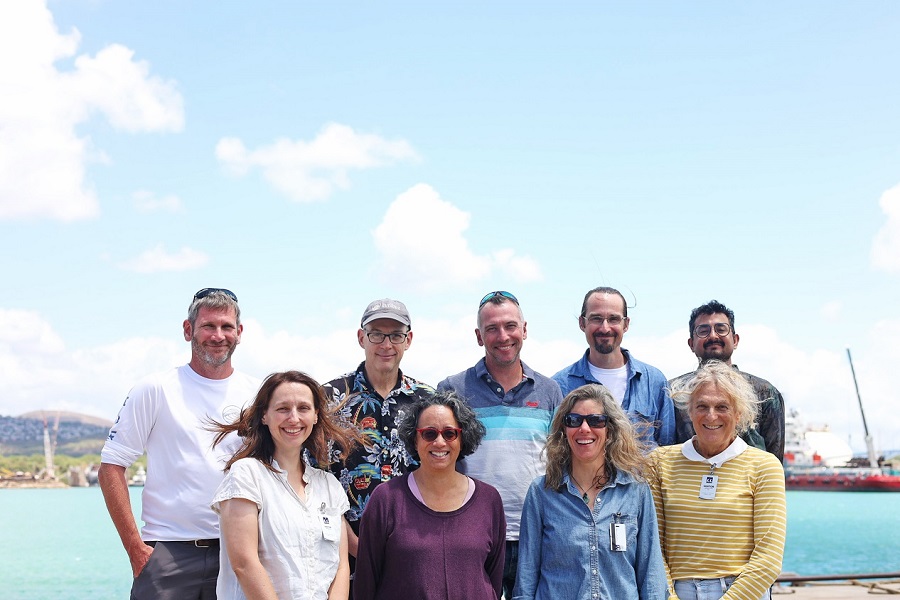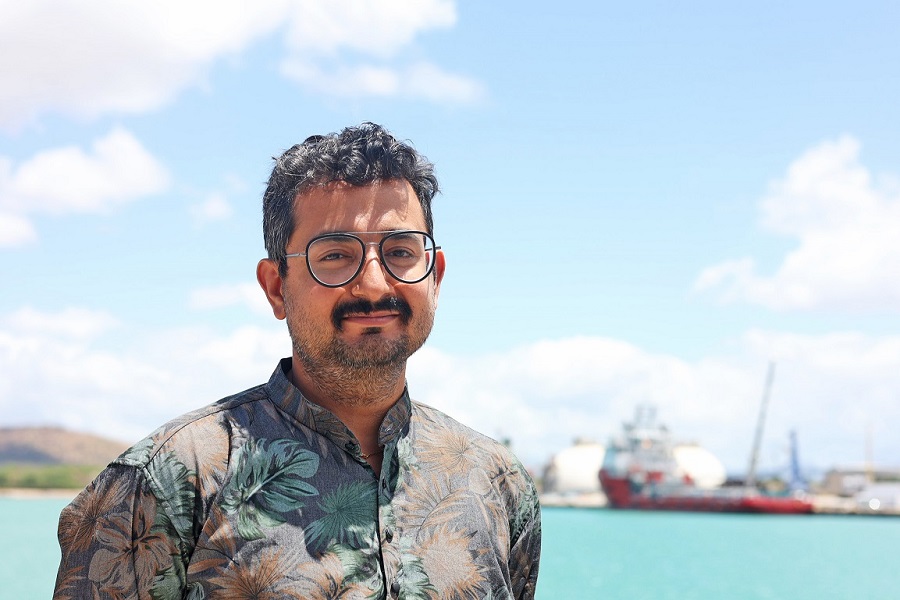STORY CREDITS
Writer/Editor: Shivangi Vasudev Bhatt
Photo: Media and Communication, IIT Gandhinagar
Prof Pankaj Khanna, Assistant Professor of Earth Sciences at the Indian Institute of Technology Gandhinagar (IITGN), has been selected as the only research scientist and Sedimentologist from India to participate in the offshore phase of the International Ocean Discovery Program (IODP)’s Hawaiian Drowned Reefs Expedition (“IODP Expedition 389”) from August 29 to November 01, 2023. Prof Khanna is part of a 31-member team of leading research scientists from across the world who will investigate the links between global sea-level change and global climate change by drilling and studying a series of fossil coral reefs surrounding the island of Hawaii to learn more about our planet.
What do IODP and ECORD do?
The International Ocean Discovery Program (IODP) is an international marine research collaboration of 21 countries, including India. It was established to explore Earth’s history, structure, and dynamics by collecting and studying the seafloor sediments and rocks, and monitoring sub-seafloor environments. The European Consortium for Ocean Research Drilling (ECORD), a part of IODP, is responsible for implementing mission-specific platforms, like the current “Expedition 389” for drilling drowned reefs offshore Hawaii.
What is “IODP Expedition 389”?
The scientific team, led by Co-chief Scientists Prof Jody Webster from the University of Sydney, Australia, and Prof Christina Ravelo from the University of California, Santa Cruz, USA, will be onboard MMA Valour, a vessel equipped with the state-of-the-art submersible drilling system – Benthic Portable Remotely Operated Drill (PROD5). They will core in up to eleven locations to a maximum thickness of 110 metres below the seafloor, in a series of fossil coral reefs surrounding the island of Hawaii. Covering important time periods in the Earth’s climate history, the information contained in these natural fossil reef archives will help scientists reconstruct sea-level change at a much higher resolution.

The IODP Expedition 389’s main goals are:
1) To measure the extent of sea level fluctuations over the past half a million years
2) To investigate why sea level and climate change through time
3) To investigate how coral reefs respond to abrupt sea level and climate changes
4) To improve scientific knowledge of the growth and subsidence of Hawaii over time.
Sharing more information about the research expedition, Prof Pankaj Khanna said, “The research cruise will provide critical datasets to dive deep into past sea levels and climate for the last five lakh years for which there are very limited records. The rocks collected through scientific drilling will give critical information on mechanisms that control abrupt climate change. I will be analysing the core samples that will be collected on the research expedition. I am looking forward to what the drowned reefs offshore Hawaii holds for us to expand our understanding.”
This news has been covered by some of the leading Indian and global newspapers and media agencies. Click on the links below to read more.

